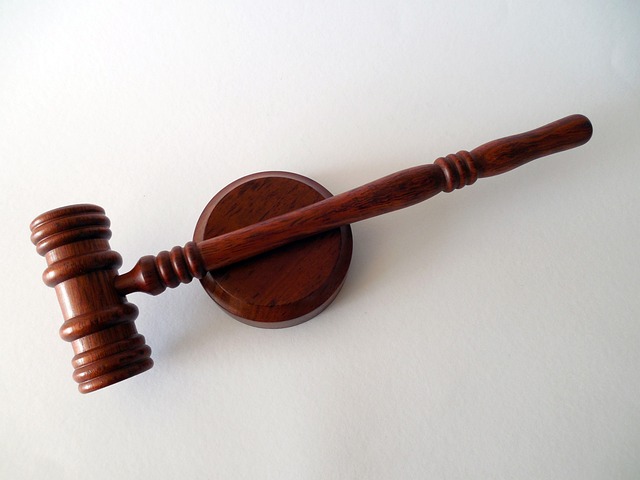In today's digital age, successful law offices rely on advanced technology and suitable hardware, including powerful computers and ergonomic monitors, tailored to their unique needs. These features enhance productivity, protect client data, and support efficient legal practices. Strategic investments in law office equipment, like robust workstations, high-resolution displays, and adjustable monitor stands, streamline workflows and contribute to a more productive and secure legal environment.
Selecting the right computers and monitors for your legal practice is crucial. In this guide, we’ll help you navigate the process by exploring the unique technology needs of law offices. From understanding essential features of law office equipment to different computer and monitor types suited for legal use, we provide insights to set up an efficient workspace. Discover how to make informed decisions that enhance productivity and streamline your legal operations.
- Understanding Your Legal Practice's Technology Needs
- Essential Features for Law Office Equipment
- Types of Computers and Monitors for Legal Use
- Setting Up an Efficient Law Office Workspace
Understanding Your Legal Practice's Technology Needs
In the digital age, a well-equipped law office is not just about having a physical space; it’s also about possessing the right technology to support legal practice. Understanding your firm’s specific tech needs is paramount. Every law office has unique requirements, whether it’s for document management, case research, or client communication. For instance, a small criminal defense practice might prioritize budget-friendly, efficient computers with quick processing for case analysis software, while a large corporate law firm could demand powerful workstations capable of handling complex legal databases and multimedia presentations.
Monitors, an integral part of the equation, should align with these needs. A larger screen real estate can enhance productivity for tasks like document review or presenting evidence to clients. Resolution, color accuracy, and refresh rates are crucial factors to consider when choosing monitors for a law office. Investing in quality hardware ensures that lawyers and their support staff work efficiently, securely, and comfortably, ultimately facilitating the smooth operation of legal services.
Essential Features for Law Office Equipment
When equipping a law office, selecting the right computers and monitors is paramount. Essential features for law office equipment include robust performance to handle demanding legal software, secure data storage options to protect sensitive client information, and displays with high resolution and color accuracy for meticulous document review and case research. Ergonomic designs that promote prolonged comfort during work sessions are also crucial, as lawyers often spend many hours crafting documents and reviewing evidence.
Furthermore, consider features like customizable layouts, connectivity options for multiple peripherals, and energy-efficient models to reduce operational costs. Advanced security measures such as fingerprint scanners or iris recognition can add an extra layer of protection against unauthorized access to confidential data. Ultimately, investing in high-quality law office equipment will enhance productivity, ensure client confidentiality, and contribute to a more efficient legal practice.
Types of Computers and Monitors for Legal Use
When furnishing a law office, selecting the right computers and monitors is essential for efficient legal practice. In today’s digital age, professionals in the legal field require robust hardware capable of handling demanding software applications like case management systems, document editing tools, and e-discovery platforms. High-performance workstations with powerful processors and ample RAM are ideal for multitasking and complex tasks. These can range from traditional desktop computers to more modern all-in-one models, offering both versatility and space-saving benefits.
Monitors play a significant role in enhancing productivity. For legal professionals who spend extended hours reviewing documents, analyzing evidence, or researching case law, ergonomic monitors with adjustable stands are recommended. High-resolution displays with wide viewing angles ensure comfort during long work sessions. Additionally, some lawyers opt for multiple monitor setups to increase workspace efficiency and facilitate side-by-side comparison of documents or different software applications simultaneously. Such configurations contribute to streamlined workflows in a law office, ensuring that equipment choices align with the demanding nature of legal practice.
Setting Up an Efficient Law Office Workspace
Setting up a productive and efficient law office workspace is essential for any legal practice. The right combination of law office equipment starts with a sturdy and comfortable workstation. This includes not just a well-designed desk and chair, but also ample storage solutions to keep documents, files, and case materials organized. High-quality lighting is another key consideration to ensure clear vision while reviewing documents or conducting research.
For legal professionals who spend significant time reviewing cases on screens, investing in top-tier computer and monitor setups is vital. A powerful computer with a fast processor and ample memory is necessary for running complex software applications and managing large case files. Pairing it with a high-resolution monitor offers crisp text and visuals, reducing eye strain during extended work hours. Ergonomic adjustments like adjustable stands and screens can further enhance comfort and productivity in the long run.
When equipping your legal practice, prioritizing user-friendly law office equipment that aligns with your workflow is key. By selecting computers and monitors with features tailored to legal needs—such as robust data security, ergonomic design for extended use, and displays optimized for document review—you create a productive and efficient law office workspace. Investing in the right technology not only streamlines daily tasks but also enhances client service and overall practice management.
